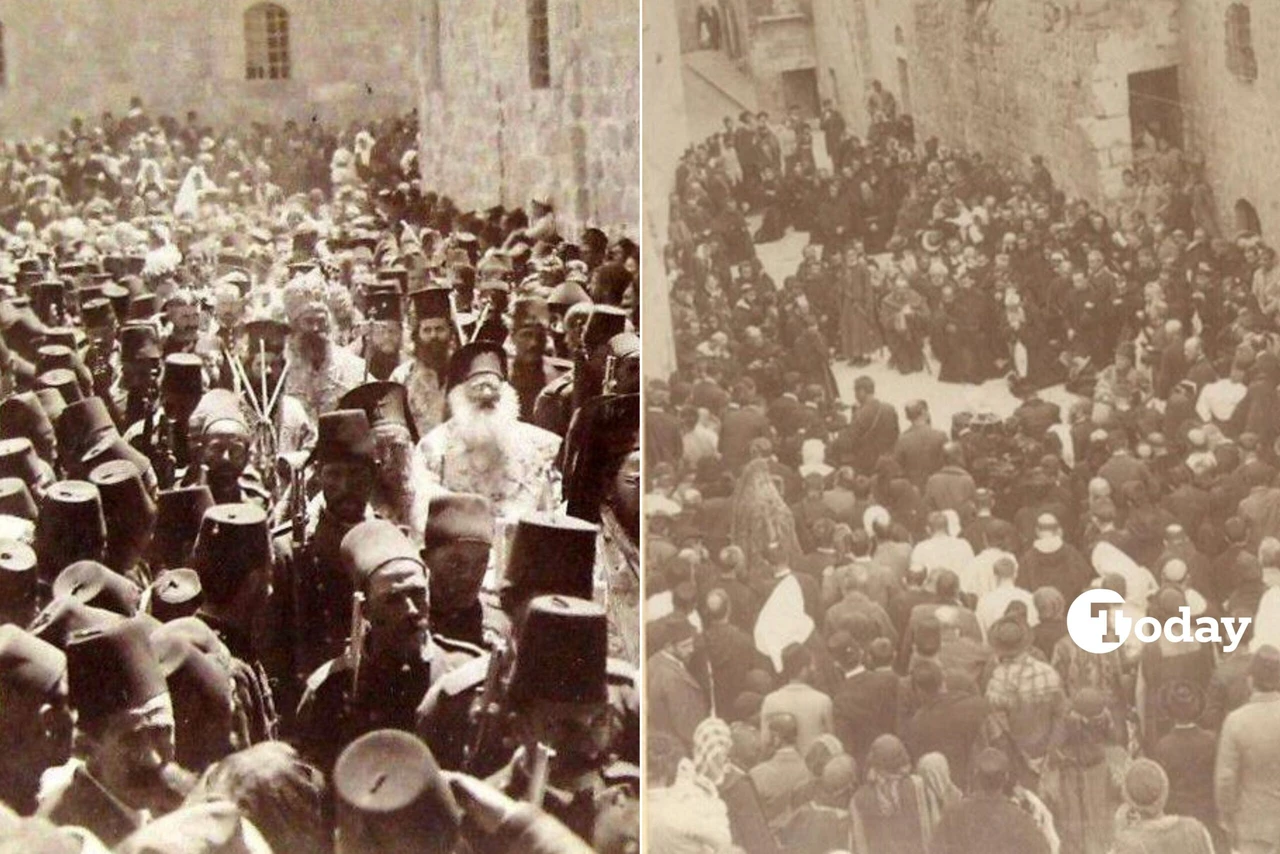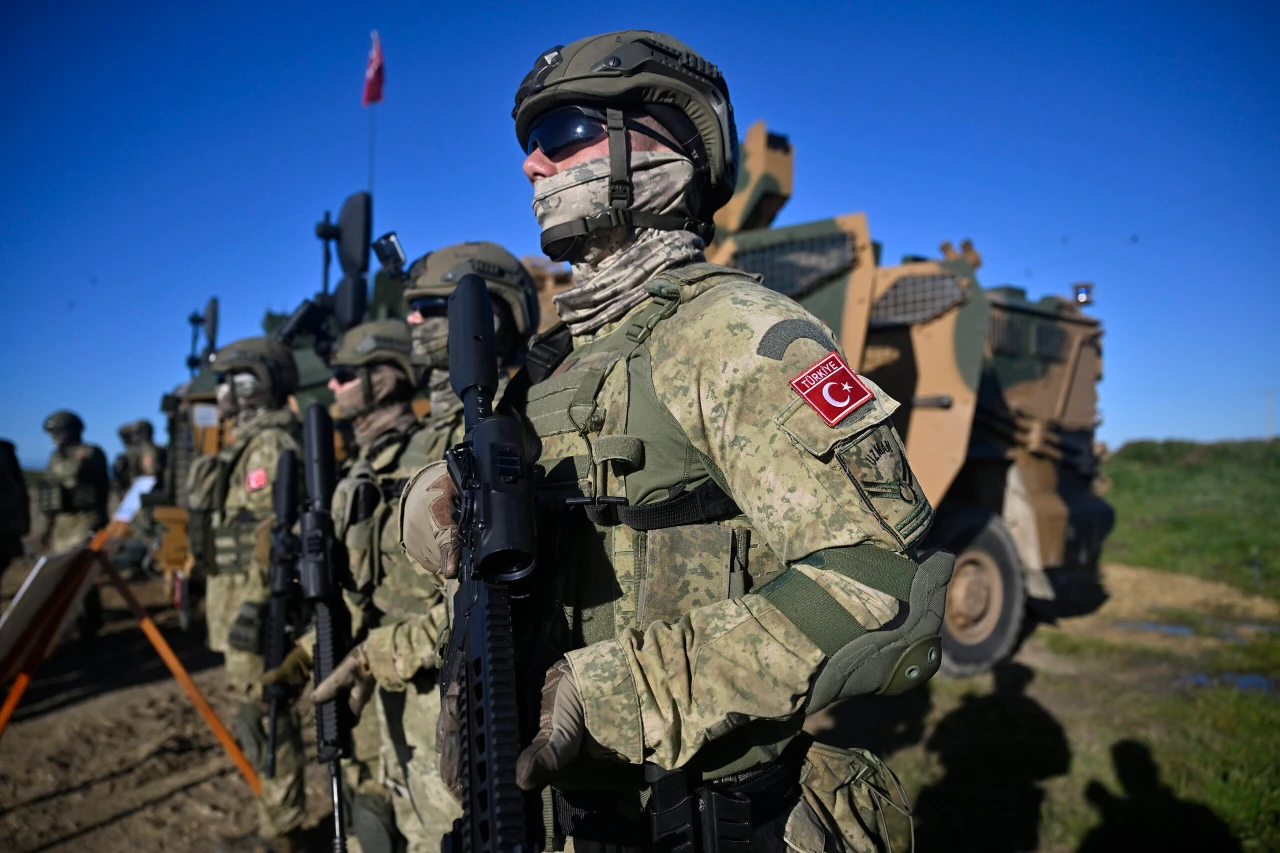Georgia set to inaugurate controversial president amid political unrest
 Mikheil Kavelashvili, the only candidate nominated by the ruling ‘Georgian Dream’ party, is selected as country’s sixth president after the voting at the Parliament building in Tbilisi, Georgia on December 14, 2024. Kavelashvili, former Georgian national football player between 1992-2002, has been a member of parliament since 2016. (AA Photo)
Mikheil Kavelashvili, the only candidate nominated by the ruling ‘Georgian Dream’ party, is selected as country’s sixth president after the voting at the Parliament building in Tbilisi, Georgia on December 14, 2024. Kavelashvili, former Georgian national football player between 1992-2002, has been a member of parliament since 2016. (AA Photo)
Georgia is set to inaugurate pro-Moscow Mikheil Kavelashvili as president on Sunday, amid a deepening political crisis that has drawn international condemnation and inflamed pro-European Union protests across the country.
Kavelashvili, a far-right former Manchester City striker and ally of the ruling Georgian Dream party, was selected by an electoral college on December 14. His swearing-in, set to take place behind closed doors in the parliamentary chamber, has been branded “illegitimate” by opposition parties and outgoing President Salome Zurabishvili.
Zurabishvili, who has pledged to remain in office until the government calls new parliamentary elections, has become a rallying figure for the thousands of demonstrators who have flooded Tbilisi’s streets daily for the past month. These protests were sparked by the government’s decision to delay European Union accession talks until 2028, a move critics view as a betrayal of Georgia’s pro-European aspirations.
Georgian opposition rejects leadership transition
Zurabishvili has declared the newly elected parliament, the government, and Kavelashvili’s presidency as “illegitimate.” Speaking to a massive crowd of protesters last Sunday, she called for a re-run of October’s disputed parliamentary elections, describing it as the “only formula to resolve such a crisis.”
Opposition parties have boycotted the newly convened parliament, while many demonstrators have vowed to defend Zurabishvili if authorities attempt to force her out of the Orbeliani Palace.
Prime Minister Irakli Kobakhidze has warned that her refusal to step down constitutes a criminal offense, punishable by “many years of imprisonment.” He has dismissed the protesters as “violent groups” controlled by a “liberal fascist” opposition, echoing rhetoric often associated with Moscow.
Clashes and allegations of police brutality
The protests, initially peaceful, have turned increasingly confrontational. Riot police deployed tear gas and water cannons during the first 10 days of demonstrations, leading to over 400 arrests. Protesters were seen throwing fireworks and stones at security forces.
Georgia’s top human rights official, Levan Ioseliani, and Amnesty International have accused the authorities of using excessive force, including “torturing” detained protesters.
The unrest has drawn sharp rebukes from international allies. Washington and several European countries have imposed visa bans on Georgian Dream officials. The United States recently sanctioned former Prime Minister and Georgian Dream honorary chairman Bidzina Ivanishvili, accusing the oligarch of undermining Georgia’s democratic future in favor of Russia.
A shift toward Moscow
Critics say the ruling party has steered Georgia away from its once liberal, pro-Western path and toward a pro-Russian stance, a shift that has further alienated the country from Brussels. The European Union froze Georgia’s accession process following what it called a failure to meet democratic benchmarks.
The political crisis now threatens to deepen, as protesters plan another large rally outside parliament during Sunday’s inauguration. Constitutional experts, including Vakhtang Khmaladze, one of the drafters of Georgia’s constitution, have questioned the legitimacy of the new government. They cite a pending court ruling at the time parliament was convened, which they argue undermined the election process.
For many Georgians, the stakes go beyond domestic politics. The Black Sea nation’s aspirations of joining the European Union remain a central focus of public outrage, as protesters continue to call for a government they believe can deliver on Georgia’s European future.



